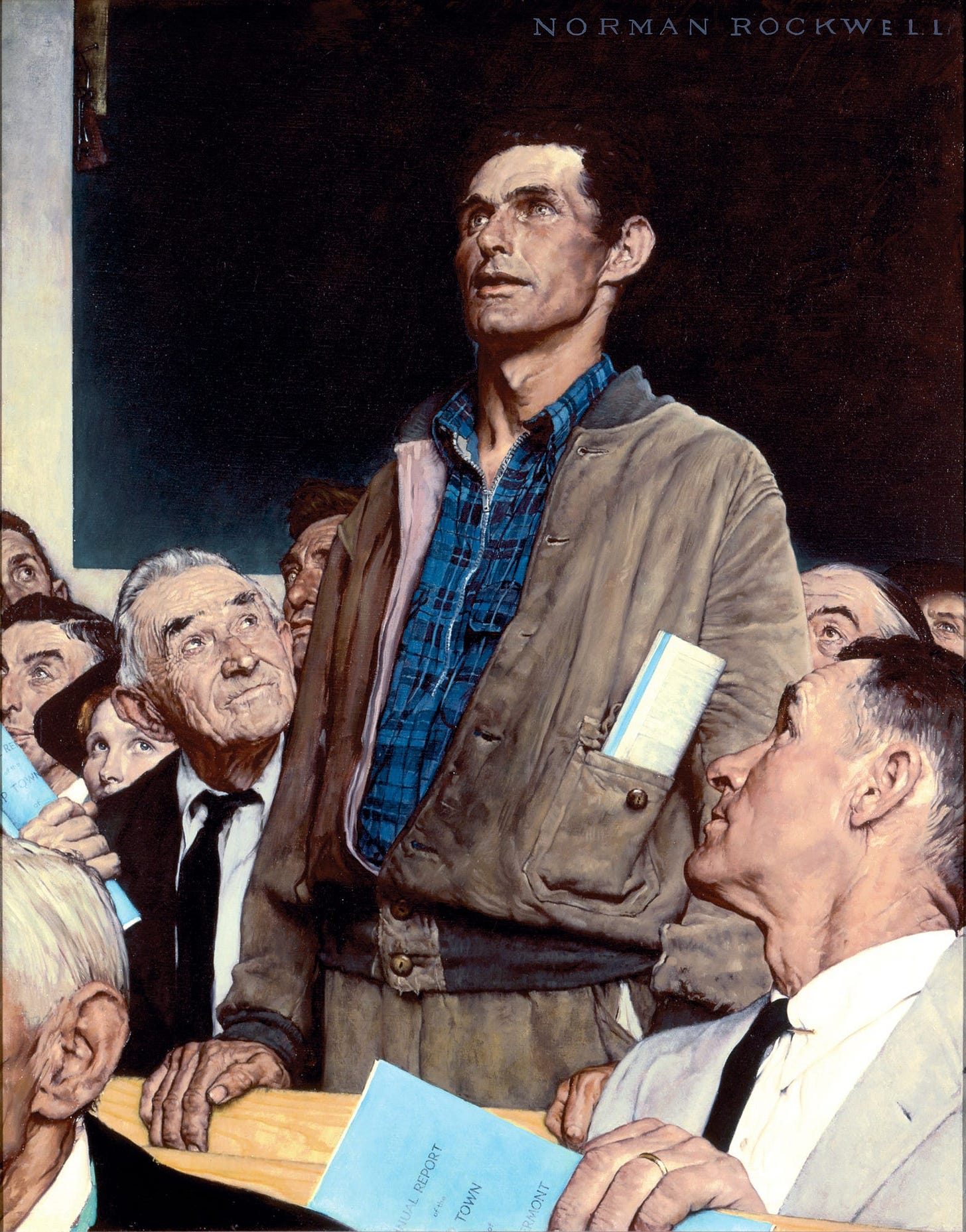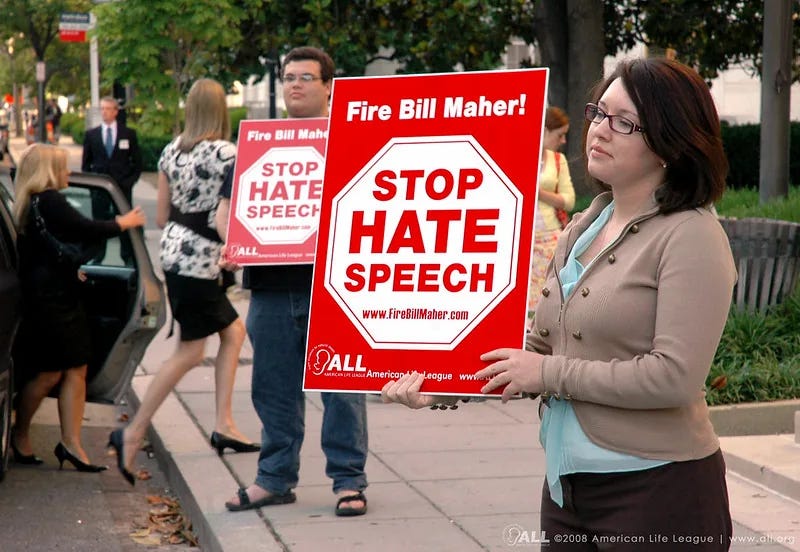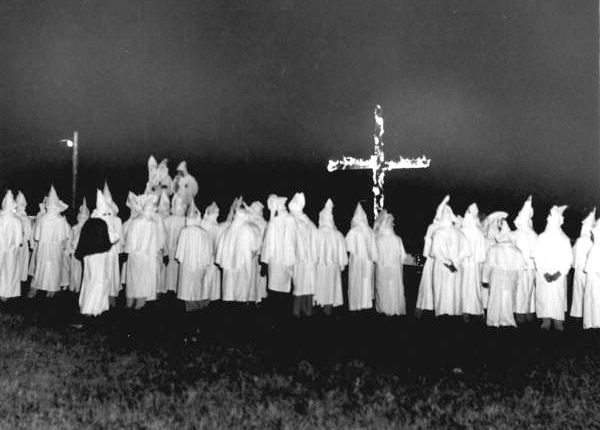Free Speech - What it is, and Why It Matters
From hate speech to misinformation, government abuse and private industry decisions, we break down what is and isn't free speech...and why it matters.
In the wake of Charlie Kirk’s assassination, which I find hard to believe it’s been almost two weeks, our country has fallen into the unfortunate but all too common pattern of being selective about which American freedoms we’d like to protect and advocate for, and for whom.
Many on the far left were vehemently calling what Charlie Kirk practiced and participated in as hate speech, and some would often call into question if that speech was protected as free speech (what Charlie did wasn’t just hate speech, it was violence!). Fast forward to today, and we have many on the political right, including the attorney general of the United States Pam Bondi, saying that in this instance with many on the political left cheering at Charlie’s death, that constitutes a form of hate speech so grotesque that it is not permitted as free speech. She says, “There’s free speech, and then there’s hate speech.”
And just late last week, news broke that ABC would be indefinitely suspending Jimmy Kimmel Live after Kimmel’s monologue about Charlie Kirk’s murder drew backlash from conservatives and several ABC affiliates. Major station groups pulled the show, and Disney/ABC replaced it with reruns while facing political pressure and public debate over free speech and media responsibility. And now just yesterday after a week off-air, ABC announced the late-night program would return on September 23, 2025.
With the amount of noise, chaos and misinformation regarding free speech, what is actually constitutionally protected and what isn’t, I decided to reach out to my friend Logan, lawyer and author/podcast host of Think Bitcoin, to help walk us through some major points and questions around free speech. It is my goal after all with this publication to bring you, the reader, principled takes, and hopefully help us all unite around liberal principles that transcend partisan politics. Liberal principles, rights and protections for us all, not just certain groups, or when is politically convenient.
T: Logan, what is free speech in the context of the First Amendment?
L: The First Amendment is first and foremost a protection against the federal government. It did not initially apply to the states (none of the Bill of Rights did), but, like other (but not all) of those rights, it has been held to apply to the states as well through the Fourteenth Amendment.
The history of the First Amendment and of freedom of speech generally, is a longer and much more complicated one than is commonly taught, but suffice to say that the idea broadly is that the government should have only very, very minimal grounds upon which to infringe upon your speech.
It should be noted again that this does not apply to private companies. We’re talking about the government, both federal and state.
It should further be noted that “speech,” which is never really succinctly defined, includes more than just the traditional meanings of speech we often think of (words and written texts). It also includes symbolic speech, nonverbal expression, and expressive conduct. The expressive nature is important for determining whether something is speech.
In Tinker v. Des Moines (1969), the Court held that wearing black armbands to protest the Vietnam War was symbolic speech, because it was expressing a message.
In Texas v. Johnson (1989), the Court held that flag burning was protected speech because it was expressing a political message.
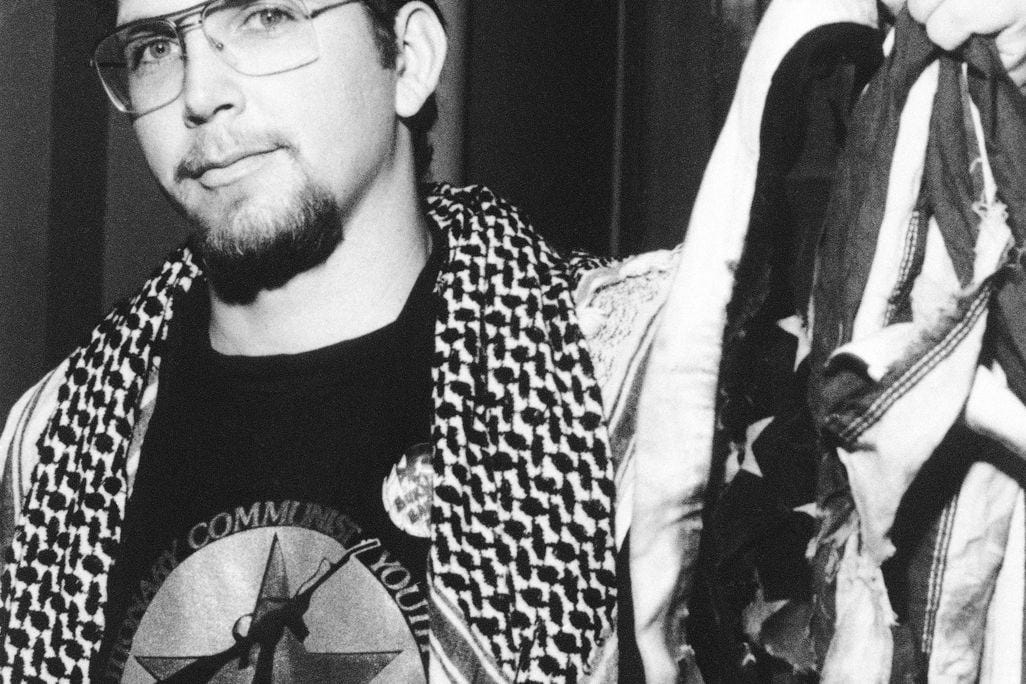
There are limits to free speech. Obscenity is not protected, though the definition of obscenity is notoriously squishy. Speech that incites imminent violence is not protected, but this is a very high bar to clear. Interestingly, in the early 20th century in cases brought under the Espionage Act, this was a much lower bar to clear. Brandeis and Holmes were often writing in dissent. But jurisprudence over time has reevaluated and raised it, and the Brandeis/Holmes way of thinking ultimately won the day.
T: How does this differ between citizens and non-citizens?
L: Technically and theoretically, non-citizens also enjoy First Amendment rights. However, when immigration issues are involved it creates a murkier nexus to navigate, as Congress has broad power over immigration and is given a lot of deference. Congress passed the Immigration and Nationality Act in 1952, which gives the Secretary of State pretty broad authority when it comes to revoking visas. There’s language in this statute that is being debated now in light of the Mahmoud Khalil situation. The statute has the following language:
Example 1: An alien whose entry or proposed activities in the United States the Secretary of State has reasonable ground to believe would have potentially serious adverse foreign policy consequences for the United States is inadmissible.
Example 2: An alien, not described in clause (ii), shall not be excludable or subject to restrictions or conditions on entry into the United States under clause (i) because of the alien’s past, current, or expected beliefs, statements, or associations, if such beliefs, statements, or associations would be lawful within the United States, unless the Secretary of State personally determines that the alien's admission would compromise a compelling United States foreign policy interest.
Example 3: After the issuance of a visa or other documentation to any alien, the consular officer or the Secretary of State may at any time, in his discretion, revoke such visa or other documentation. Notice of such revocation shall be communicated to the Attorney General, and such revocation shall invalidate the visa or other documentation from the date of issuance:
So it remains to be seen how these issues shake out with respect to their relationship to the First Amendment. And of course, Congress could also change the law that grants the Secretary of State this authority.
T: What is hate speech, and is it protected by the First Amendment?
L: Hate speech is protected by the First Amendment. Full stop. America is unique here. But despite what politicians from both sides of the aisle have told you and will continue to tell you, this isn’t even a jurisprudentially controversial topic. Hate speech is protected. What would render it unprotected is if it incited imminent violence that is likely to occur. But again, this is a high bar. Saying very nasty, offensive things is protected under the First Amendment. To be clear, you can be fired from your job for saying nasty, offensive things. The government just cannot prosecute you for them.
T: What are some notable examples of free speech court cases and their rulings. Any one stand out to you as your favorite example?
L: The most important case for free speech was probably Brandenburg v. Ohio (1969) because it was a pretty groundbreakingly broad and emphatic protection of speech, holding that even speech that advocates violence is protected if the violence is not directed to incite imminent lawless action that is likely to occur. Prior to this case, previous First Amendment cases mostly upheld convictions, despite eloquent dissents from Justice Holmes and Justice Brandeis. This case changed the game and gave us our modern framework for free speech.
The case itself involved a member of the KKK giving a speech at a rally. The speech itself is absolutely vile and would fit every colloquial/cultural definition of hate speech we currently have.
Other notable cases are Tinker v. Des Moines (1969) and Texas v. Johnson (1989). In Johnson, Justice Kennedy wrote a great concurrence in which he echoed a belief of Justice Scalia, namely that if you don’t have cases the ultimate results of which you don’t personally like then you are probably a bad judge. Justice Kennedy wrote that while he personally finds flag-burning deeply offensive, the Constitution compels the result that it’s protected speech.
I personally love the Brandeis concurrence in Whitney v. California (1927), which I quote from below. Justice Holmes famously introduced the “marketplace of ideas” concept in Abrams v. United States (1919). Holmes wasn’t always a fervent free speech advocate, but his views shifted over time. He and Brandeis both wrote beautifully about the First Amendment from about 1919 onward.
T: Why is it important to defend free speech, even speech we find deplorable?
L: I think Justice Louis Brandeis said it best in his concurring opinion in Whitney v. California, which, incidentally, was a case that actually upheld a conviction. In any case, Justice Brandeis wrote:
“Those who won our independence believed that the final end of the State was to make men free to develop their faculties, and that, in its government, the deliberative forces should prevail over the arbitrary. They valued liberty both as an end, and as a means. They believed liberty to be the secret of happiness, and courage to be the secret of liberty. They believed that freedom to think as you will and to speak as you think are means indispensable to the discovery and spread of political truth; that, without free speech and assembly, discussion would be futile; that, with them, discussion affords ordinarily adequate protection against the dissemination of noxious doctrine; that the greatest menace to freedom is an inert people; that public discussion is a political duty, and that this should be a fundamental principle of the American government. They recognized the risks to which all human institutions are subject. But they knew that order cannot be secured merely through fear of punishment for its infraction; that it is hazardous to discourage thought, hope and imagination; that fear breeds repression; that repression breeds hate; that hate menaces stable government; that the path of safety lies in the opportunity to discuss freely supposed grievances and proposed remedies, and that the fitting remedy for evil counsels is good ones. Believing in the power of reason as applied through public discussion, they eschewed silence.”
T: How can we encourage the expression of free speech for all people, and what should leaders be doing to reiterate this during our contentious and divided time?
L: I’m not sure I think there’s anything profound that individual citizens can do here other than trying to model this ideal. That means more discussion, less cancellation. More engagement, fewer silos. The same goes for leaders. They need to model the ethos of free speech by engaging with their opponents in good-faith debate. Cancellation, coercion, suppression, etc. are antithetical to competition in the marketplace of ideas.
My biggest concern, candidly, is that as a citizenry we have become so intellectually and spiritually divorced from the ethos of the Founders and our founding documents and institutions that literacy in the ideas and debates that birthed the country is diminishing with a sad rapidity. Fewer and fewer Americans read history, read Supreme Court cases, read the Constitution, etc.
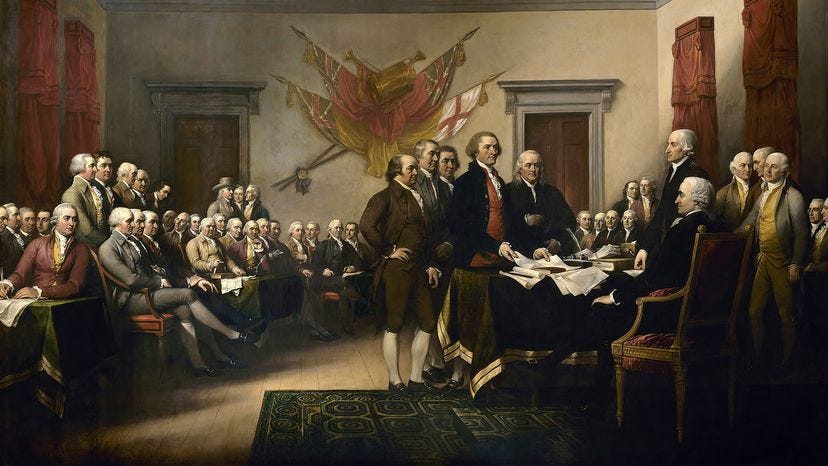
T: What is the difference between censorship or deplatforming vs. infringing on free speech (Kimmel example)
L: This is a tricky one because we don’t know all the facts in the Kimmel case, but relating to that specific case the law’s pretty clear that if the FCC and the DOJ were threatening ABC and Disney because of Kimmel’s views, that’s a violation. See Justice Sotomayor’s opinion, writing for a unanimous Court, in NRA v. Vullo (2024):
“Six decades ago, this Court held that a government entity’s “threat of invoking legal sanctions and other means of coercion” against a third party “to achieve the suppression” of disfavored speech violates the First Amendment. Bantam Books, Inc. v. Sullivan, 372 U. S. 58, 67 (1963). Today, the Court reaffirms what it said then: Government officials cannot attempt to coerce private parties in order to punish or suppress views that the government disfavors.”
That being said, ABC and Disney are also totally entitled to make business decision with their personnel. If they want to terminate or suspend Jimmy Kimmel because they don’t like what he said, the First Amendment is not a legal impediment. Recall that the First Amendment is a protection against the government – not against private companies.
If you stuck around long enough to read to this point, clearly you care about free speech and studying the complexities and importance of it for American society and our liberal values. One thing is abundantly clear to me — it’s up to us, the citizenry, to care. Our politics feel more divided than ever, social media inflames these fights, and it causes us to feel isolated and separated into our tribes rather than one country under the same rule of law and constitutional freedoms. It starts with me, you, us.
Lean in to debate. Lean into calling for the protection and rights of everyone to speak, especially that speech you disagree with most. Take a principled stand. The founders had a profound sense of how special, and fragile, the new government they were creating was. We must daily fight for it choose it, or it will crumble.


